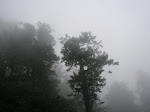It was the spring of 1990. For the first time in over 20 years, I'd flown back to the city of my birth.
That first night, Prague's beauty seemed painted, like the backdrop of a theater set, like the Grand Canyon the first time I saw it. The eyes could not quite take it in as reality, that spotlighted castle hanging high in the night sky, across the river from the theater cafe where we'd dined with our oldest friends.
It was May, and it was magic. Imagine the glory of Obama's inauguration lasting well into the spring, lilacs scenting whatever air had escaped the acid rain of brown coal-fueled power plants. People laughed often; we saw dozens of friends and relatives, and everyone had a thrilled smile. They were free, and that spring, nothing else mattered.
I returned two years later, thinking to look in that world for a more permanent place for me. Surely East-central Europe could benefit from my experience in business and education.
I let go of the idea within a day of my arrival. It wasn't the people; although they'd lost some of the sparkle of their first spring of freedom, they were hearty in their greetings and generous with their resources.
The public sector, though, was mired in the past. It still took two hours to get train tickets to Vienna, and buying groceries for a steak dinner involved tolerating rudeness and inconvenience inconcievable to this Safeway-trained consumer.
One afternoon I walked through my granparents' old neighborhood, past blocks of houses built before WWII, and noticed the contrast between the fenced front yards, each filled with thousands of flowers carefully planned and manicured, and the ill-repaired, dogshit-strewn sidewalk. I remembered the stories I'd heard of men who left their city-funded jobs at 2 in the afternoon, and the construction material, meant for city buildings, that found its way onto private property. The result of fifty years of forced public funding were people did not regard city or state property as in any way deserving of their ownership.
In the late seventies I spent a year at SUNY Stony Brook, on Long Island. Ducks preened their feathers in the pond across the road. "They wouldn't last a day in Teheran; people would cook them for dinner!" The Iranian students in the next wing of my dorm commented.
Soon after I moved to the Springs, the Gazette ran an admiring story about Rockrimmon residents who had devoted many afternoons to creating a private trail running through and behind their neighborhood. The trail is still there; signs warn nonresidents not to park near any of the trailheads. I wrote a letter, which the paper never published, describing my fury that the reporter called this volunteer work; it seemed to me simply a way for property owners to improve their private way of life.
The point of this rambling is, of course, that everywhere I've been, I've seen citizens shorting the public sector in favor of the private. And that is, as the spectacularly filthy public bathrooms of Prague still tend to show, eternal. But though the homeowners on Cascade have built, and may have to knock down, a wall to hold out against the world around them, none of us can afford the moats the lords of old used to hold out against the rabble that inhabited the shabbier corners of their demesne. Somehow we'll need to figure out how to live as a city again.
The Y was jammed around 5 this afternoon. Perhaps because people were banking exercise against the anticipated chicken-winged sloth of Sunday afternoon, everybody was out running and swimming and lifting and yoga-ing. I looked around the pristine hallways and parking lots, and thought about how we all carefully wipe down machines, how the only rule anybody ever seems to break is the rather unreasonable one against babies in the dressing room. Maybe it's because we all pay for it every month, or because the benefit we get from our membership is so immediate, that we behave so well. As an agnostic verging on atheism, I promise it ain't the 'christian principles' proclaimed on the walls of the place.
Or maybe it's because so many of us know each other. Given that on an average visit, I nod to at least 10 others, it would be embarrassing to get caught not taking care of business. And maybe that's what's wrong with our city - we no longer know each other as we once did, and what we do for the public good, now, we do for strangers. Perhaps Hazlehurst's tongue-in-cheek a few weeks ago was right, and we should just mutually secede into spheres of interest.
Fun to think about, harder to accomplish. I think what we really need is - inspiration. Somebody smart, funny, and competent needs to step up and bully us into behaving in each others' best interest. A Ted Haggard with less questionable principles and a more coherent lifestyle, maybe.
Anybody???
Friday, February 5, 2010
Subscribe to:
Posts (Atom)
